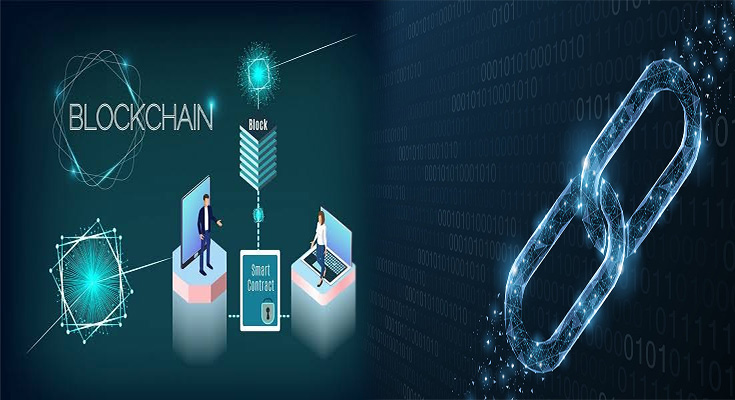The blockchain is a decentralized ledger that records digital transactions. It’s like a huge accounting book where transactions between two parties are recorded. The blockchain is shared among many users and it can only be updated by consensus of the network members. Because there’s no central authority (like a bank), blockchain technology has gained popularity as an alternative way to do business.
Smart contracts are self-executed with no need for human intervention.
Smart contracts are self-executed with no need for human intervention. They are software code that can be executed on a blockchain, where they automatically implement their terms when certain conditions are met.
Smart contracts are used to facilitate, verify and enforce many types of contractual clauses. For example:
- Escrow services — A third party holds funds in escrow until both parties agree it’s appropriate to release them (e.g., after delivery). This reduces the risk that either party will try to cheat the other by taking possession of goods before payment is made or withholding payment after delivery has been made.
- Payment systems — Payments between two individuals can be facilitated by creating an automated system which requires both parties’ signatures before releasing funds from one account into another account on behalf of both parties involved in this transaction; this makes sure nobody gets paid twice while still allowing both sides complete control over how much money goes where at any given time (you could even use this type of system if you wanted).
Smart contracts can be used to facilitate, verify and enforce many types of contractual clauses.
Smart contracts can be used to facilitate, verify and enforce many types of contractual clauses. They are self-executing, meaning that the terms of a smart contract are written directly into lines of code. As such, smart contracts can be used for all kinds of transactions.
Contracts involve three parties: one who issues the contract (the promisor), one who receives it (the promisee) and an arbitrator or mediator in case there’s a dispute between these two parties. With traditional methods like escrow agents or lawyers acting as middlemen between two parties while they negotiate their contracts, it’s expensive and time consuming; this makes it difficult for small businesses without deep pockets to compete with larger ones on price because they have less leverage when negotiating with suppliers or customers due to higher overhead costs associated with hiring legal help when needed instead relying solely on automated processes such as those facilitated by blockchain technology provides
Smart contracts can be used to create peer-to-peer protocols for trading, sharing or selling of virtual property.
Smart contracts can be used to create peer-to-peer protocols for trading, sharing or selling of virtual property. Smart contracts make it easier to create secure multi-party agreements without the need for a central authority to enforce them. This has implications in many industries such as real estate, healthcare and law.
The terms and conditions of a smart contract are written in code (instead of legal prose) enforced by the blockchain.
Smart contracts are self-executed, meaning that they automatically execute when certain conditions are met. They are written in code and enforced by the blockchain.
Smart contracts can be used to facilitate, verify, and enforce many types of contractual clauses. For example:
- An insurance policy could be replaced by a smart contract that pays out automatically if you get into an accident or suffer from an illness;
- A landlord could use a smart contract to collect rent from tenants who live in their house;
- A company could set up a dividend distribution system based on shares held in shares or bonds – this would make it much easier for investors (who don’t want to deal with banks)
A blockchain is a decentralized ledger that records digital transactions.
A blockchain is a decentralized ledger that records digital transactions. It’s also known as a distributed database, since it’s spread out across many different computers.
A blockchain is a continuously growing list of records called blocks, which are linked and secured using cryptography. Each block contains a cryptographic hash of the previous block, a timestamp and transaction data (generally represented as the sender/recipient’s public keys). The linked timestamps mean that once information has been added to the chain it cannot be altered without breaking all subsequent links in the chain.
A blockchain database isn’t stored in any single location but instead exists on multiple nodes or computers simultaneously; there are no centralized versions kept by any one entity for control purposes.
Blockchain technology is reshaping business practices for better efficiency, security, and transparency.
Blockchain technology is reshaping business practices for better efficiency, security, and transparency. Blockchain is a distributed ledger that can be public or private. It’s decentralized in nature as it exists on multiple computers around the world. The data stored on such blockchains are immutable and transparent because they’re visible to all parties involved in transactions. It also provides an auditable trail of records that makes it easy to track back if needed by regulators or law enforcement agencies
Blockchain technology is reshaping business practices for better efficiency, security, and transparency. It offers a great opportunity for developers to build new applications and services that can transform our lives by making them more efficient.





